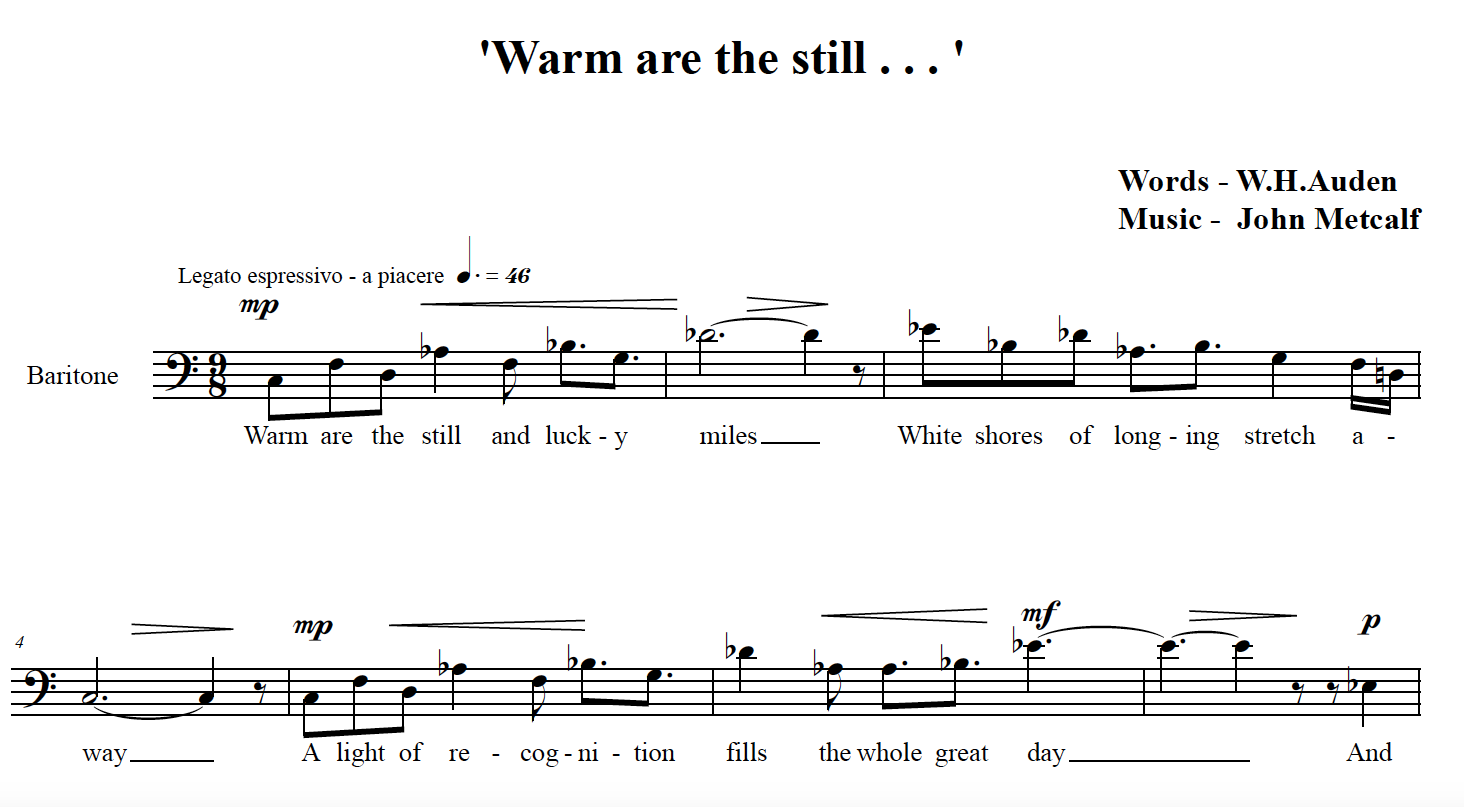Programme Note
My ‘Auden Songs’ were written in 1974 in response to a commission from the Cardiff Festival. The process of writing the children’s opera ‘PTOC’ two years before had opened out the possibilities of writing for the voice, and when I came to work on this piece it was with a sense of real enjoyment. The composition proceeded fluently and the resulting songs are now the earliest work of mine that I feel happy with. At the time of composition I was happily unaware of other settings of these words, in particular Britten’s.
The lullaby (‘Lay your sleeping head, my love’) was composed along with the other songs in 1974 but withheld at the time of the world premiere and for many years after. I later rediscovered it in an old trunk and, feeling that my earlier censorship of it had been too harsh, reinstated it.
The three stanzas of ‘Warm are the still and lucky miles’ unaccompanied, except in the case of the second stanza by a pedal note, announce, punctuate and conclude the sequence of settings, that is as follows :
Warm are the still and lucky miles
Sing, Ariel, Sing (Invocation to Ariel)
Underneath an abject willow
Lay your sleeping head, my love, (Lullaby)
Driver, drive faster (Calypso)
Silence invades the breathing wood (Second stanza of ‘Warm are the still’)
Now the leaves are falling fast (Autumn Song)
Make this night loveable, Moon (Nocturne)
Restored! Returned! The lost are borne (Third stanza of ‘Warm are the still’)
There are versions for high and medium voice and the songs may be sung by any voice male or female; They have been widely performed by, among others, Eirian James, Alison Truefitt and (in a version for tenor) Neil Jenkins.
